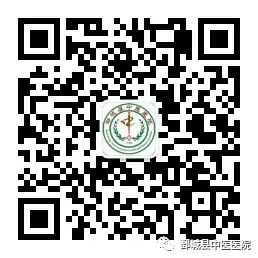“Five Organs and Six Bowels” is an idiom that refers to the main organs in the human body. However, very few can accurately name all the Five Organs and Six Bowels. What are their functions? How do they work? Below, I will explain them one by one. Traditional Chinese Medicine (TCM) believes that the organic whole of a person is a highly complex unity centered around the Five Organs, complemented by the Six Bowels, and connected through the meridians, forming five major systems. This is part of the systems theory in TCM. “Organs” refers to solid organs, which include the heart (xin), liver (gan), spleen (pi), lungs (fei), and kidneys (shen), making up the Five Organs. The pericardium (xin bao) is also considered part of the organs, thus referred to as the Six Organs. However, it is customary to associate the pericardium with the heart, so the term Five Organs encompasses the pericardium. The term “organ” (zang) means to store. The heart stores the spirit (shen), the lungs store the corporeal soul (po), the liver stores the ethereal soul (hun), the spleen stores thought (yi) and wisdom (zhi), and the kidneys store essence (jing) and will (zhi), hence they are called the Five Organs. “Bowels” (fu) refers to hollow organs, which include the gallbladder (dan), stomach (wei), large intestine (da chang), small intestine (xiao chang), bladder (pang guang), and san jiao (triple burner), which receive the turbid qi from the Five Organs, thus named the Six Bowels. Heart Function (Five Organs) 1. Governs consciousness – this includes thinking, memory, and judgment, which are mental states. The heart governs the spirit, so when the heart is ill, it can lead to forgetfulness, insomnia, and mental disturbances. 2. Governs blood vessels – the heart can control the blood vessels, so it is related to blood deficiency and blood stasis, similar to the liver. Liver Function (Five Organs) 1. Stores blood – liver disease can lead to blood deficiency and blood stasis, and conversely, blood deficiency and stasis can trigger liver disease. 2. Crown of the Five Organs – a strong liver makes one less prone to illness. Conversely, if the liver is weak, it can lead to physical weakness, susceptibility to colds, throat inflammation, and swollen lymph nodes, all caused by liver dysfunction. 3. Dislikes constraint – the liver prefers comfort and dislikes constraint, so when under mental pressure, it can become angry and anxious, leading to liver dysfunction. Menopausal disorders and occupational diseases are examples of this type of liver disease. Spleen Function (Five Organs) 1. Governs food absorption – the spleen absorbs nutrients from food and breaks them down into easily absorbable substances, distributing them to all organs. Abnormal spleen function often leads to digestive decline, causing malnutrition and weight loss. 2. Governs muscles, hands, and feet – being overweight, underweight, or having cold hands and feet, and lack of desire to move are symptoms of spleen dysfunction. 3. Governs blood – when spleen function declines, it can lead to blood deficiency and increased bleeding tendencies. Lung Function (Five Organs) 1. Governs respiration – air enters the body through the lungs, providing the necessary oxygen. Lung abnormalities can lead to respiratory diseases such as asthma and cough. 2. Governs the circulation of body fluids – the circulation of fluids is also under the control of the lungs. If the lungs are diseased, they may become swollen, and the skin may gradually dry out. 3. Governs the nose – conditions such as sinusitis and nasal pus indicate lung issues. Kidney Function (Five Organs) 1. Stores essence – essence has three functions: first, growth and development; second, absorption of nutrients from food, becoming the source of blood and qi; third, governing reproductive functions. The kidneys are said to store essence, hence some refer to them as the measure of life force, with aging being a sign of kidney deficiency. 2. Governs body fluids – all body fluids are regulated by the kidneys. Symptoms such as edema, stagnation, diabetes insipidus, and frequent urination are caused by kidney deficiency. 3. Governs bones, ears, and hair – kidney deficiency can lead to premature aging, resulting in various joint and bone diseases, deformities, hearing loss, and hair loss. Gallbladder (Six Bowels) Determines when organs such as the stomach and intestines perform digestion and when to stop. A clear example is sleep, which requires a certain “determination” for all organs to enter a resting state, so those with gallbladder deficiency often experience insomnia. Stomach (Six Bowels) Digests food into easily absorbable nutrients. Symptoms of stomach disease include loss of appetite, indigestion, nausea, and vomiting. Small Intestine (Six Bowels) Separates the nutrients from food into three categories: water, qi, and blood, then distributes them to the necessary organs. Indigestion, diarrhea, and constipation are diseases related to the small intestine. Large Intestine (Six Bowels) Receives the residue after absorption from other organs and expels it from the body. Constipation and diarrhea are diseases related to the large intestine. Inflammation of the large intestine can cause redness and swelling of the anus, even leading to hemorrhoids and rectal bleeding. Bladder (Six Bowels) Collects body fluids and sends them to where needed, then expels excess water from the body. Symptoms of bladder inflammation include edema and frequent urination. San Jiao (Six Bowels) Promotes the circulation of qi, blood, and body fluids, allowing each organ to function fully; thus, disease in the san jiao can affect the health of all organs.
